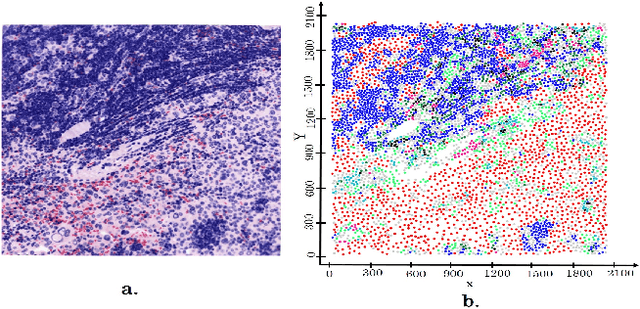MC-DGCNN: A Novel DNN Architecture for Multi-Category Point Set Classification
Paper and Code
Dec 22, 2021



Point set classification aims to build a representation learning model that distinguishes between spatial and categorical configurations of point set data. This problem is societally important since in many applications domains such as immunology, and microbial ecology. This problem is challenging since the interactions between different categories of points are not always equal; as a result, the representation learning model must selectively learn the most relevant multi-categorical relationships. The related works are limited (1) in learning the importance of different multi-categorical relationships, especially for high-order interactions, and (2) do not fully exploit the spatial distribution of points beyond simply measuring relative distance or applying a feed-forward neural network to coordinates. To overcome these limitations, we leverage the dynamic graph convolutional neural network (DGCNN) architecture to design a novel multi-category DGCNN (MC-DGCNN), contributing location representation and point pair attention layers for multi-categorical point set classification. MC-DGCNN has the ability to identify the categorical importance of each point pair and extends this to N-way spatial relationships, while still preserving all the properties and benefits of DGCNN (e.g., differentiability). Experimental results show that the proposed architecture is computationally efficient and significantly outperforms current deep learning architectures on real-world datasets.
 Add to Chrome
Add to Chrome Add to Firefox
Add to Firefox Add to Edge
Add to Edge